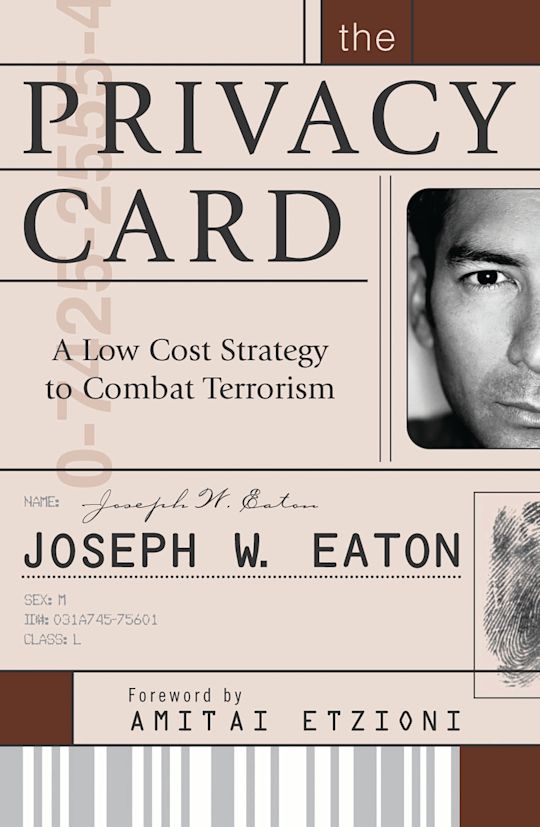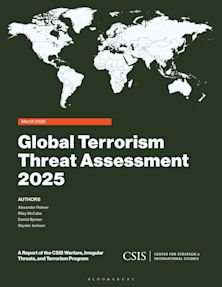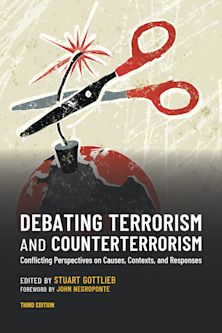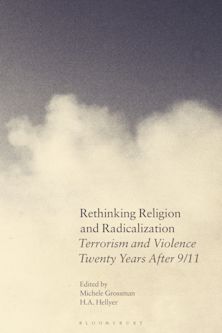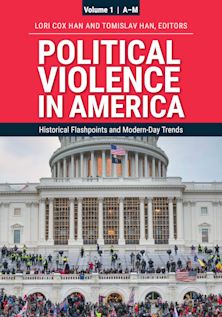- Home
- ACADEMIC
- Politics & International Relations
- Terrorism and Political Violence
- The Privacy Card
The Privacy Card
A Low Cost Strategy to Combat Terrorism
The Privacy Card
A Low Cost Strategy to Combat Terrorism
You must sign in to add this item to your wishlist. Please sign in or create an account
Description
The re-issue of a technology-based book 16 years after it was originally published is an unusual event. The events of September 11th, 2001 were more than unusual and have elicited a variety of responses from the technological to the philosophical. One response-the issue of a secure and tamper-resistant process of personal identification for U.S. residents and citizens-is neither new nor difficult to implement from a technological standpoint. The idea of a national ID card has been hotly debated (and rejected) for years, but in the wake of September 11th, its time may finally have come.
This revised edition of what was originally published as Card-Carrying Americans is being published for its emphasis on the privacy issues posed by the book's proposals, an updated introduction, and a new foreword. Author Joseph W. Eaton discusses the social value of a national ID card, the problems of technology, the threat to privacy, possible safeguards, and the effects of different policies on society and the Bill of Rights.
Eaton addresses some of the same "tough choice" questions that foreword writer Amitai Etzioni addresses in his influential book, Limits to Privacy. Here Eaton and Etzioni join in contending that some trade-offs are long overdue in the now pressing interest of the public good.
Table of Contents
Chapter 2 The Card That Could Change America
Chapter 3 National ID Card Options
Chapter 4 The Deterrence Technology
Chapter 5 The Case for a VIP Card
Chapter 6 The Case Against a VIP Card
Chapter 7 Identification and Democracy
Chapter 8 Weighing the Balance
Chapter 9 Policy Alternatives
Chapter 10 Modernizing the Bill of Rights
Chapter 11 Summing Up
Product details
| Published | 04 Feb 2003 |
|---|---|
| Format | Ebook (Epub & Mobi) |
| Edition | 1st |
| Extent | 272 |
| ISBN | 9781461711285 |
| Imprint | Rowman & Littlefield Publishers |
| Publisher | Bloomsbury Publishing |
About the contributors
Reviews
-
Eaton's solid presentation furthers dialog on a controversial topic. Recommended.
Choice Reviews
-
This text is thought provoking, highlighting many current approaches to the wide-spread adoption of biometrics. Eaton directs attention to the use of biometric templates to complete what some of us refer to as the triangle of positive personal ID. That concept is the biometric and biographic linkage of (1) each individual, to (2) his/her quality ID document, to (3) remote, control authorities managed, databases of that information. This total system of personal identification can assure accurate ID of each individual, protecting against fraud and facilitating action for the legally entitled person. Positive identificationmust be the cardinal prerequisite for adjudicating each individual benefit or enforcement action. Such issues make this subject an absolutely timely consideration for all world populations and their bodies of government.
Jerry Webster, former program manager of the U.S. Alien Documentation Program
-
Unmistakably, the events of 9-11 have forced the United States and other liberal democracies to recalibrate the balance between privacy and security. Joseph Eaton's timely book invites a long-overdue national conversation about the need for a reliable system of national identification, and the ways in which advances in biometrics can enhance both security and privacy.
Richard J. Bonnie, John S. Battle Professor of Law, University of Virginia
-
The text is thought provoking and highlights many approaches to widespread adoption of some form of metrics. Eaton recognizes the importance of national identification cards and in The Privacy Card has the guts to say so, even when it may be an unpopular position to take.
Sir Read Alot Book Review
-
Even those of us who oppose national ID cards must educate ourselves about the range of possible architectures of identification that can strike better or worse balances between liberty and security. Joseph Eaton's book provides useful information for this important debate.
Jeffrey Rosen, author of The Unwanted Gaze: The Destruction of Privacy in America
-
Those who stick their necks out and urge upon their community measures that must be taken for its benefit, but which the community resists undertaking, should be showered with medals-especially when their recommendations prove to be very prescient indeed. Joe Eaton belongs at the head of this parade. He has been a lone voice who many years ago recognized the importance of national ID cards and dared to say so in public when it was a very unpopular position to take. We've learned a lot since 9/11. Now the majority of Americans see the world the Eaton way, and not a moment too soon.
Amitai Etzioni, professor, George Washington University; founder of the Society for the Advancement of Socio-Economics, From The Foreword









